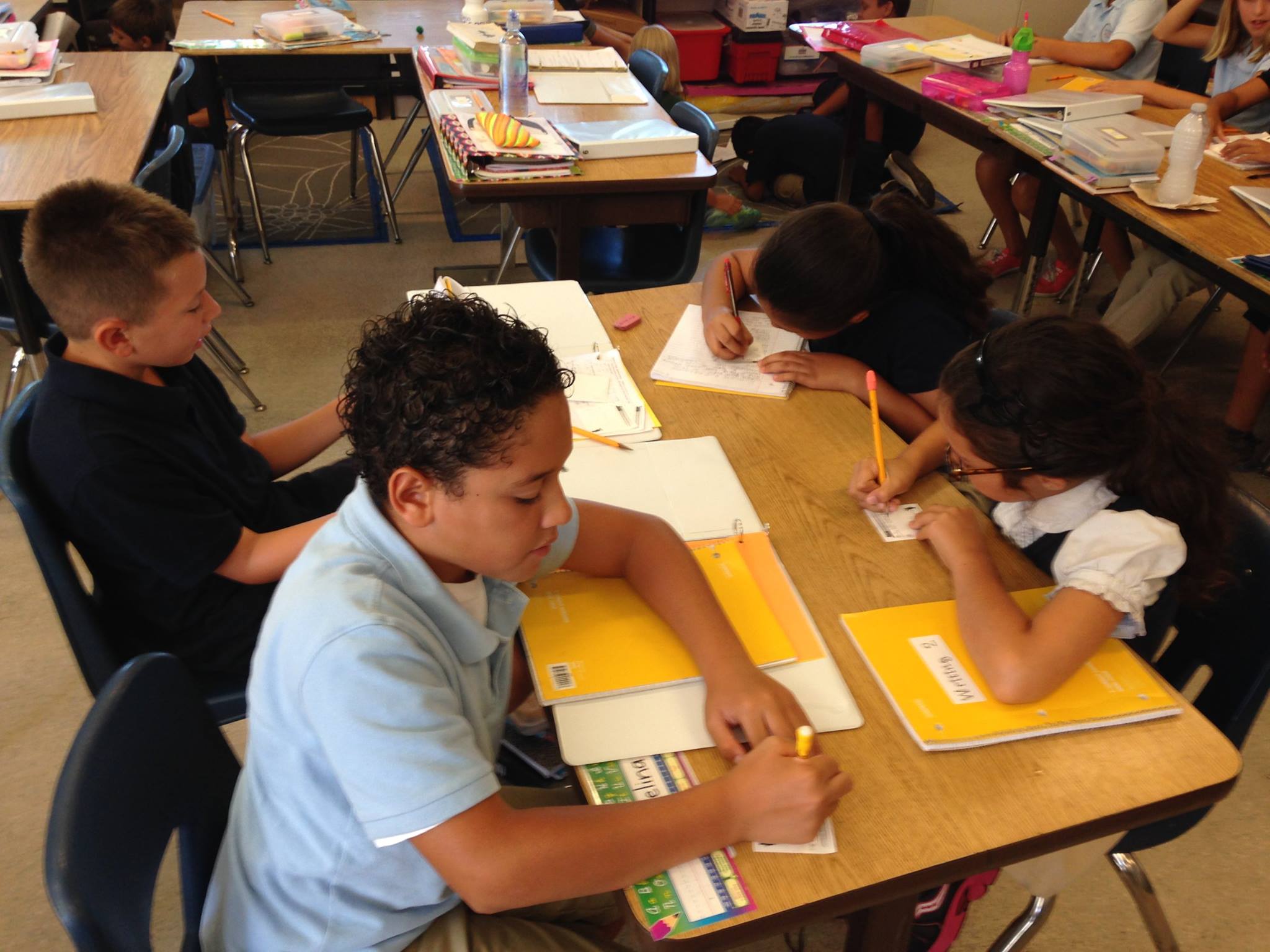
By Daniel Gerardi
Working as a facilitator for Poetic Youth has been an extremely rewarding experience. I’ve had the privilege to work with the eighth grade class at San Diego Global Vision Academy, and now with only two sessions left, I wish I had more time. The faculty are supportive of both the students and us as facilitators; they realize that although we have come to teach workshops, we are still learning as well. The students at SDGVA are receptive and capable; without a doubt they are well on their way to becoming “civic-minded leaders, accomplished writers, and resilient life-long learners”, in accordance with SDGVA’s mission statement. Prior to this, I have had very little classroom experience, certainly nothing as structured and effective. I once taught an art class to third-graders. We made Van Gogh paintings together—quite fun, messy, and hectic—if I’d had the knowledge then that I’ve gained from my facilitations, the day would have certainly gone smoother.
When working with thirty students (and having little teaching experience), it can be quite difficult to maintain engagement and keep the class focused. Our facilitation team had trouble with that during one of the weeks. The desks in the classroom were lined up in rows in order to make the best use of space. Students were sitting in the same seats in the same rows they sat in every other day of school. It created a lot of separation between the facilitators and the students, made it harder to engage with individuals, and did nothing to alter the illusion that we were all still in school. One of the most successful facilitation strategies we have used is as simple as changing the routine. We numbered off the kids 1-5 and had them separate into small clusters around the classroom, with one facilitator leading each group. This worked wonders. It instantly changed the energy in the room—students were no longer stuck in the rigid routine of school, and we were better able to have close communication with a manageable number of students. The smaller group allowed for shyer students to share with less anxiety, and for facilitators to provide more involved assistance to each student in their group. To improve this strategy even more, we have considered splitting up into four groups—one less group than the number of facilitators—in order to allow one of our facilitators to act as floating support between all the groups. Changing how the students are sitting has been a simple and effective method for classroom management, and one I highly recommend.
Working with the students on writing has been incredible. Although (quite naturally) they sometimes need some gentle spurring to get started. When these students feel free to write honestly, the results are amazing. I specifically remember our first in-depth writing exercise: The Truth. We had the students think of a time when they weren’t able to say what they felt—something that happened near or to them that made them upset or angry or frustrated, but they weren’t able to find the words or were too scared/ashamed to speak their minds. We had them first describe the scene in as much detail as possible, explaining what exactly happened and what they felt, so a reader who wasn’t there could understand. Then we had them write about why they couldn’t say anything at the time, again, in as much detail as possible. We spent about 15-20 minutes on these two parts. After they had generated the content, we had them fit the ideas into a poem structure “Because I…Because they…”. They used repeating “Because” lines to explain the situations and their reasons, moving closer and closer to their Truth at the end of the poem. As this was our first writing exercise, we facilitators were a little worried that the students might not fully understand what to do. We were quickly surprised at how well they handled it. They were brilliant. We spent a good 15 minutes sharing what we had written. Such powerful work in such a short amount of time—raw, honest poetry—mothers crying, grandmothers dying, arguments with loved ones. I was very moved that day, very proud, and completely immersed. Although I wish I could share more, the students keep their work at school in their folders, where they can feel comfortable that nobody is nosing through it without their permission.
In the past facilitations, I have worked well one-on-one and in small groups, encouraging students and prompting them to write more. I get nervous too (though every week, less so) and addressing the class as a whole is something I’m still working on. With only a few sessions left, I’m hoping to prepare the students for our final performance so they are confident in their voices and poetry. Regardless of how much they have written, or how good they believe it is, the fact that these students have been so receptive in working with us on their writing is an incredible achievement. I want them all to feel as proud as I do about the work they have done, and the work they still have yet to do, both for our final performance and for the rest of their lives. Writing is one of the most powerful tools we have at our disposal. I hope these students can find a significant place for it and continue to use it as an outlet for communication.
